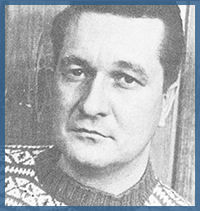
William Styron was born in Virginia, where he set his first novel, Lie Down in Darkness (1951), written when he was 26. It immediately established his reputation. Two of Styron’s five major novels incited public controversy. The Pulitzer Prize-winning Confessions of Nat Turner (1967), cast as the memoirs of the slave who led a 1831 slave rebellion, was accused of racial stereotyping; Sophie’s Choice (1979), about a Holocaust survivor seen through the eyes of a young writer who resembled Styron, aroused fierce criticism yet became a best seller. Styron’s 1990 memoir, Darkness Visible, was a major contribution to public understanding of depression.
Lie Down in Darkness
Lie Down in Darkness traces the tragic fate of a Southern family, in a style that mirrors the inner lives of its four major characters. The parents are estranged, with each favoring one of their two daughters. The father dotes on Peyton, the family beauty, while the mother is devoted to Maudie, the disabled child. The novel, told in flashbacks, opens with Peyton’s funeral after her emotional unraveling and suicide. The passage Styron reads here shows Maudie’s magical encounter with the workman, Bennie.
